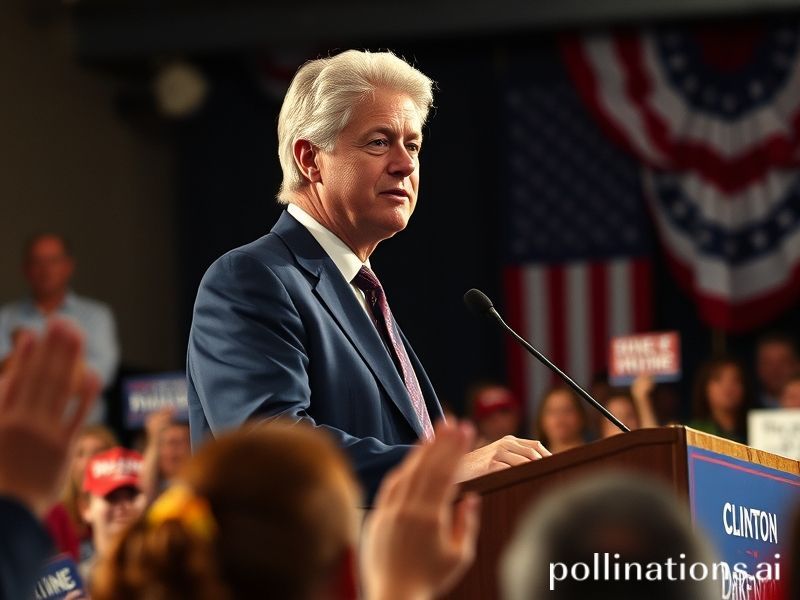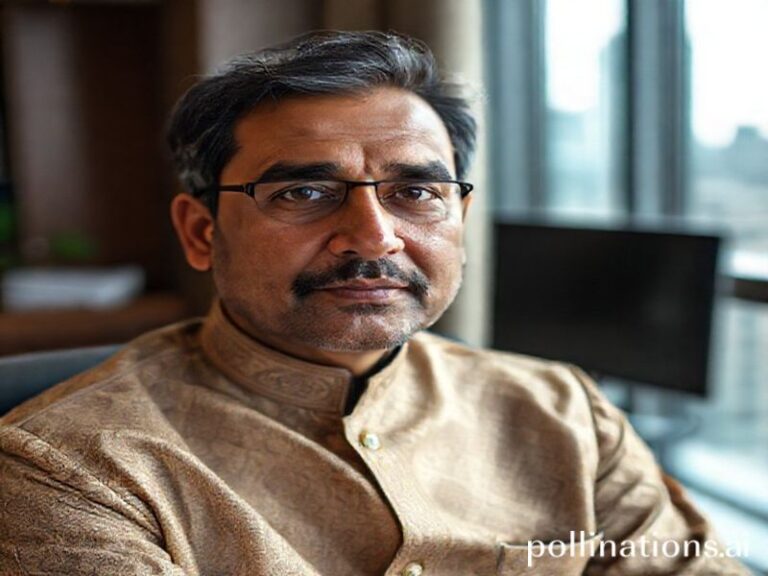How Bill Clinton Remixed the American Empire—and Sold the World a Saxophone Solo
Bill Clinton, the Man Who Taught the World to Love a Flawed Superpower
By Dave’s Locker Global Correspondent
PARIS—Somewhere between the foie-gras carts of the Champs-Élysées and the kebab stands of Istanbul, you can still hear the faint echo of a saxophone riff that once sold the American Century as a never-ending cocktail hour. That soundtrack was composed by William Jefferson Clinton, the improbably charismatic Arkansan who reminded the planet that even a hyper-power can have daddy issues and a wandering libido. Three decades after he first sauntered onto the world stage, the aftershocks of his particular brand of politics—equal parts Oprah and Machiavelli—continue to ricochet from the Balkans to the Belt and Road.
The world, of course, had met American presidents before: wooden actors, paranoid anti-communists, ex-cowboys who confused foreign policy with John Wayne cosplay. Clinton arrived as the first fully post-Cold-War specimen, armed with the conviction that markets could replace ideology, that bombed-out Sarajevo shopping malls were the natural sequel to the fall of the Berlin Wall. He pitched NATO enlargement the way Silicon Valley now pitches NFTs—early adopters only, limited downside, and if a few million Slavs got stuck debugging the beta version, well, that’s what the International Monetary Fund is for.
Europe, still tipsy on the idea that history had actually ended, signed up for the upgrade. The continent swapped Soviet tanks for Starbucks franchises so fast that Brussels briefly mistook deregulation for liberation. In Asia, meanwhile, the Asian Financial Crisis of ’97 provided Clinton with a live demonstration of how a well-timed bailout could turn entire governments into client states. Thailand got the money; Thailand also got the lesson: the lone superpower giveth liquidity, and the lone superpower taketh sovereignty.
Latin America, nursing a hangover from the Reagan-era Contra cocktails, received NAFTA instead of napalm. The treaty was marketed as democracy by paperwork—cross-border courts where a panel of corporate lawyers could overrule the Mexican Supreme Court faster than you could say “tequila sunrise.” South of the border, they still call it the “Tratado Clinton,” equal parts free trade and freebase.
Yet it was the Middle East where Clinton’s global seminar in managed chaos reached peak absurdity. Camp David 2000: the last time an American president tried to trade land for peace while simultaneously bombing Iraq on “maintenance” sorties. The summit collapsed, but the PowerPoint lived on—exported to every think tank from Doha to Davos like a defective IKEA manual missing the crucial Allen key.
And then came the blue dress. Monicagate was supposed to be a domestic farce, but the planet quickly learned that U.S. scandals are broadcast in HD worldwide. In Beijing, cadres studied the impeachment saga like a cautionary telenovela: see what happens when you let the media run wild. In Moscow, a bored KGB lieutenant colonel named Putin drew the obvious conclusion—if you control the narrative, you control the country. In retrospect, the intern and the cigar did more for authoritarian statecraft than a thousand Foreign Affairs essays.
Clinton left office with a budget surplus and a moral deficit. The surplus evaporated in two wars and a mortgage bonanza; the deficit metastasized into the performative piety now required of every Western leader. Emmanuel Macron can’t eat a croissant without a fact-checker auditing the butter content; Justin Trudeau’s socks get more scrutiny than his carbon targets. The Clinton template—charm first, policy later, scandal as background radiation—has become the global default setting.
Today, as another impeached U.S. president tours international courts in The Hague (figuratively, for now), the Clinton legacy looks less like a bridge to the 21st century and more like a pop-up ad we forgot to close. The saxophone is silent, replaced by TikTok anthems and drone-buzz lullabies. But wander into any Davos after-party and you’ll spot the same grin, the same promise that prosperity is just one deregulation away. The world has learned to mimic the accent without quite trusting the warranty.
Call it globalization’s greatest magic trick: convincing 7.9 billion people that the flaws of one Arkansas boy are the birthright of all mankind. And for that, we raise a lukewarm Diet Coke to Bill—patron saint of selective memory, high-gloss hypocrisy, and the eternal hope that tomorrow’s scandal will be more entertaining than today’s catastrophe.







